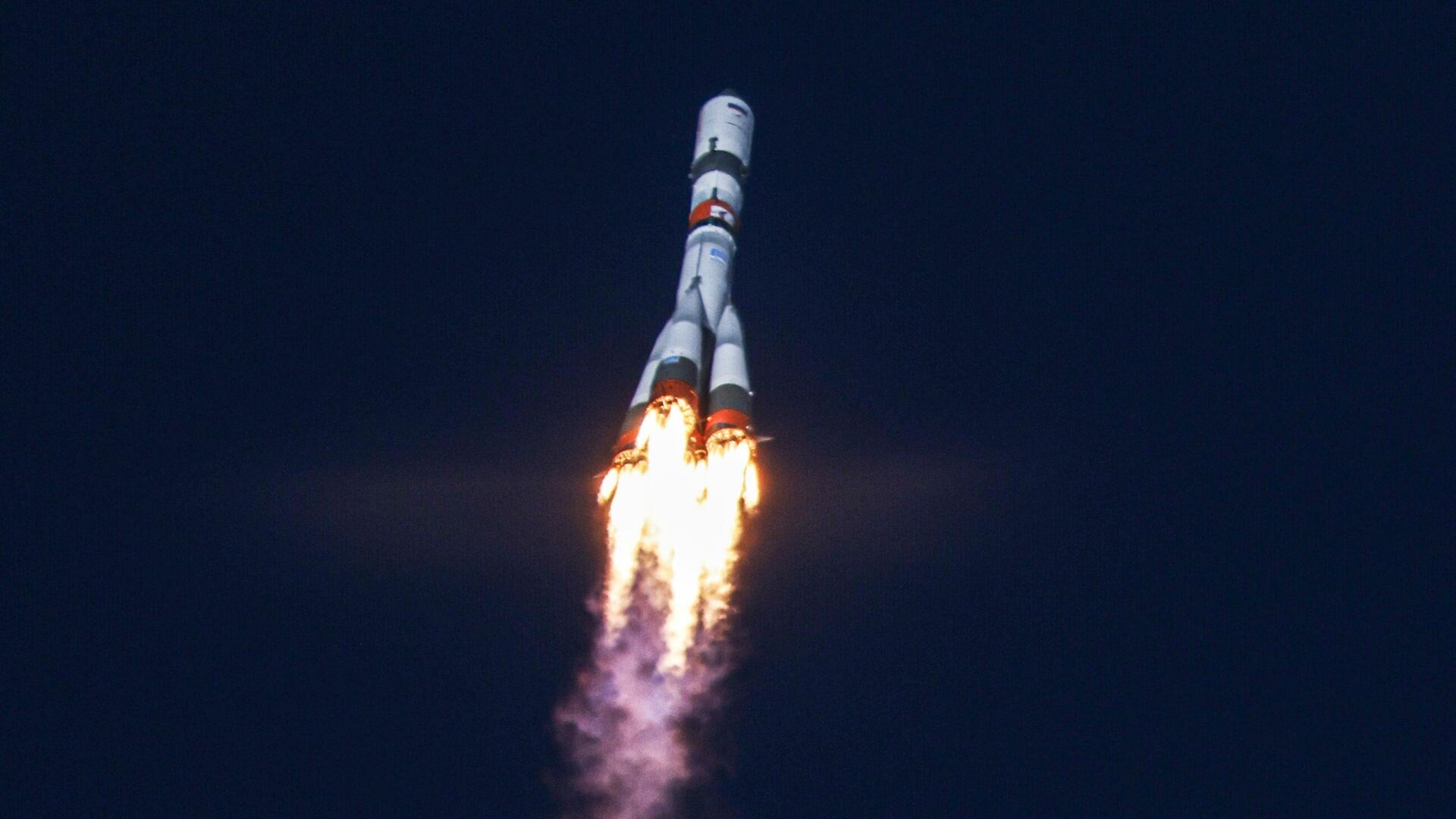https://sputnikglobe.com/20240215/rocket-with-russias-progress-ms-26-space-freighter-launches-from-baikonur-to-iss-1116791831.html
Rocket With Russia's Progress MS-26 Space Freighter Launches From Baikonur to ISS
Rocket With Russia's Progress MS-26 Space Freighter Launches From Baikonur to ISS
Sputnik International
A Russian Soyuz 2.1a rocket carrying the Progress MS-26 cargo spacecraft, which will deliver more than 2.5 tonnes worth of cargo to the International Space Station (ISS), launched from the Baikonur Cosmodrome on Thursday, according to a live broadcast by Russian state space corporation Roscosmos.
2024-02-15T04:14+0000
2024-02-15T04:14+0000
2024-02-15T04:14+0000
russia
roscosmos
russia
baikonur
international space station (iss)
baikonur cosmodrome
space exploration
soyuz-2.1a
soyuz rocket
https://cdn1.img.sputnikglobe.com/img/07e8/02/0f/1116791298_0:0:2595:1461_1920x0_80_0_0_c932a7736a0d11227d85bb85cd0c22b6.jpg
Nine minutes after the liftoff, the rocket will put the spacecraft into Earth orbit, and the Progress spacecraft will separate from the rocket's third stage and begin its independent flight to the ISS. Russia's new space freighter will fly the traditional two-day route and is scheduled to dock the station on February 17 at 9:12 a.m. Moscow time (06:12 GMT). The spacecraft will spend a total of 180 days in space. The spacecraft will deliver to the station more than 2.5 tonnes of cargo, including nearly 1.5 tonnes worth of hardware and equipment for the station's systems and scientific experiments, clothing, food, medical and sanitary supplies for the ISS crew, 580 kilograms of fuel, 420 kilograms of drinking water and 40 kilograms of nitrogen. The space freighter also carries consumables for the new scientific experiment dubbed "Fullerene" to grow fullerite crystals in the Nauka module — the third crystalline form of carbon, which is a new class of semiconductors. Progress MS-26 will also carry equipment for the new scientific experiment Orbita-MG to create a monitoring system that will find cracks and other leaks in the station's hull.
russia
baikonur
Sputnik International
feedback@sputniknews.com
+74956456601
MIA „Rossiya Segodnya“
2024
Sputnik International
feedback@sputniknews.com
+74956456601
MIA „Rossiya Segodnya“
News
en_EN
Sputnik International
feedback@sputniknews.com
+74956456601
MIA „Rossiya Segodnya“
Sputnik International
feedback@sputniknews.com
+74956456601
MIA „Rossiya Segodnya“
space exploration, rocket launch, roscosmos, international space station, russian soyuz, russian progress, russian space mission, russian space, russians in space, russian space industry, russian space shuttle
space exploration, rocket launch, roscosmos, international space station, russian soyuz, russian progress, russian space mission, russian space, russians in space, russian space industry, russian space shuttle
Rocket With Russia's Progress MS-26 Space Freighter Launches From Baikonur to ISS
MOSCOW (Sputnik) - A Russian Soyuz 2.1a rocket carrying the Progress MS-26 cargo spacecraft, which will deliver more than 2.5 tonnes worth of cargo to the International Space Station (ISS), launched from the Baikonur Cosmodrome on Thursday, according to a live broadcast by Russian state space corporation Roscosmos.
Nine minutes after the liftoff, the rocket will put the spacecraft into Earth orbit, and the Progress spacecraft will separate from the rocket's third stage and begin its independent flight to the ISS.
Russia's new space freighter will fly the traditional two-day route and is scheduled to dock the station on February 17 at 9:12 a.m. Moscow time (06:12 GMT). The spacecraft will spend a total of 180 days in space.
The spacecraft will deliver to the station more than 2.5 tonnes of cargo, including nearly 1.5 tonnes worth of hardware and equipment for the station's systems and scientific experiments, clothing, food, medical and sanitary supplies for the ISS crew, 580 kilograms of fuel, 420 kilograms of drinking water and 40 kilograms of nitrogen.
The space freighter also carries consumables for the new scientific experiment dubbed "Fullerene" to grow fullerite crystals in the Nauka module — the third crystalline form of carbon, which is a new class of semiconductors. Progress MS-26 will also carry equipment for the new scientific experiment Orbita-MG to create a monitoring system that will find cracks and other leaks in the station's hull.


